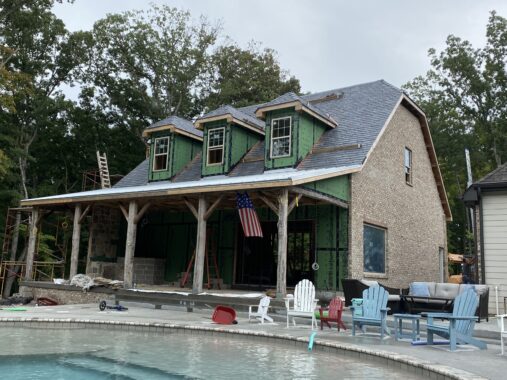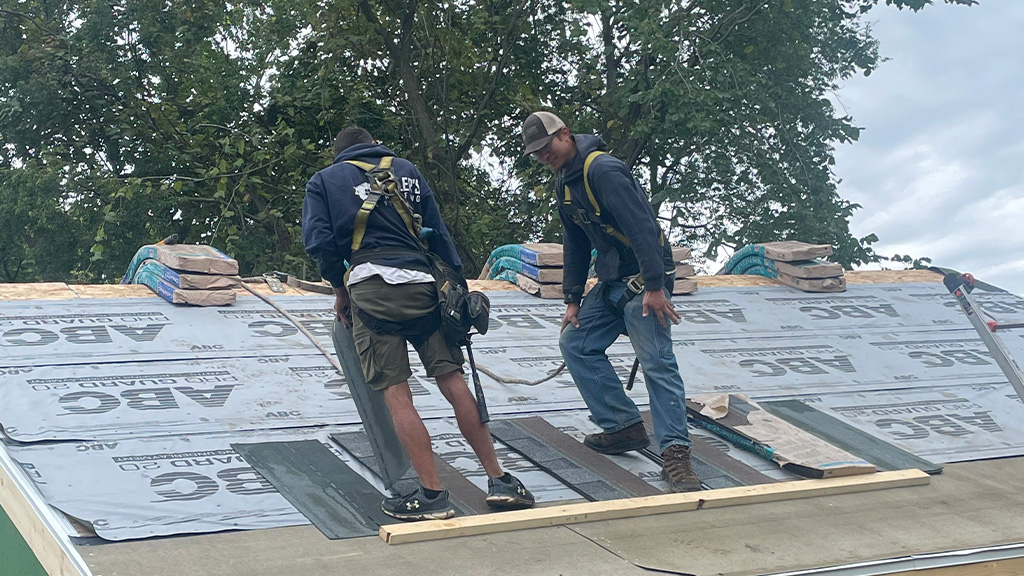
Commercial Roofing
Home – Services
Roofing Services
Commercial Roofing
Best solution for your house roofing
Call Anytime

Commercial roofing is installed on commercial building such as big box stores, strip malls, and apartment building. Just like residential roofs, commercial roofing systems’ primary function is to protect the building and property. Commercial roofs tend to have flat or only slightly slanted roofs which cannot be seen from the ground. They come in a wide variety of materials that are determined by the structure of the building and other factors such as climate conditions, like extreme heat and severe cold. The materials used to build and install commercial roofs are usually made up of TPO, EPDM, PVC, metal, modified bitumen, built-up roofing system, and more.
Commercial Roofing System Details
Commercial roofing is installed on commercial buildings such as big box stores, strip malls, and apartment buildings. Just like residential roofs, commercial roofing systems’ primary function is to protect the building and property. Commercial roofs tend to have flat or only slightly slanted roofs which cannot be seen from the ground. They come in a wide variety of materials that are determined by the structure of the building and other factors such as climate conditions, like extreme heat and severe cold. The materials used to build and install commercial roofs are usually made up of TPO, EPDM, PVC, metal, modified bitumen, built-up roofing system, and more.
Each commercial roofing system has their own unique benefits, purpose, and maintenance requirements. The six most common types of commercial roofs are metal, built-up roofing system (BUR), EPDM, PVC, TPO, and green roofs. Metal roofs are a popular choice, come in different materials, are durable, and have high fire-resistant ratings. BUR membrane is the standard tar and gravel roof system that is low slope, as well as a durable and cost-effective option. EPDM (Ethylene Propylene Diene Terpolymer), or rubber roof, is versatile, long-lasting, and easy maintenance. It has a strong resistance to ozone and ultraviolet light as well as flexibility in colder temperatures. PVC (Poly Vinyl Chloride) and TPO (Thermoplastic Polyolefin) roofs are lightweight, resistant to UV rays, punctures, and most chemicals and bacterial growth. They are great for restaurants, hotels, and other businesses that release oils from the ventilation systems. Finally, green roofing systems are becoming more popular and are a sustainable option. They can improve efficiency and manage water and drainage concerns, as well as be environmentally friendly.
The way a commercial flat roof is installed varies greatly depending on which type of roofing material is chosen. They each have their own unique benefits as well as their own unique installation techniques. However, there are a few things that each one does need to install a commercial flat roof the right way. For instance, the roof must have a low slant so water can run off easily to the edge. It also needs to have a sound frame to withstand the weight of the roofing material, otherwise a much greater problem will occur. A proper gutter system is essential. A commercial roof will do the job of sealing the roof from water leaks and leading it to the gutters. However, without a good gutter system to support it, the risk of leaks along the sides of the building or pooling water on the ground increases. Commercial roofs are usually long and wide; therefore, the installation process takes time to complete. The products and materials used in commercial roofs also take a while to settle and dry before another product can be applied over it, which is a main reason there is a delay in commercial roofing.
Why a commercial roofing system?
When choosing a commercial roofing system, there are many factors to keep in mind. The type of facility and its roof must be taken into consideration because each roofing material and type require specific installation, applications, and maintenance exclusive to the building and exclusive to the business. The quality of a commercial roof relies of the materials that are used, the quality of the company that is hired, and the way it is maintained after it is installed.
